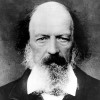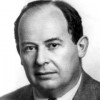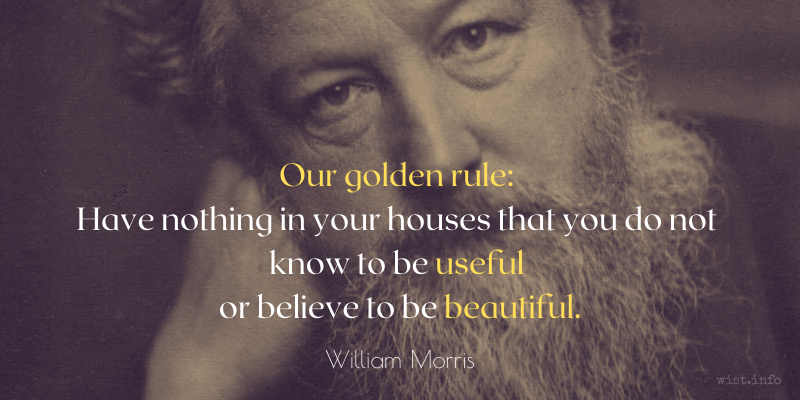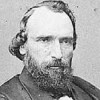The mill cannot grind with the water that’s past.
George Herbert (1593-1633) Welsh priest, orator, poet.
Jacula Prudentum, or Outlandish Proverbs, Sentences, &c. (compiler), # 153 (1640 ed.)
(Source)
Quotations about:
usefulness
Note not all quotations have been tagged, so Search may find additional quotes on this topic.
However that may be, it is always disastrous when governments set to work to uphold opinions for their utility rather than for their truth. As soon as this is done it becomes necessary to have a censorship to suppress adverse arguments, and it is thought wise to discourage thinking among the young for fear of encouraging “dangerous thoughts.” When such mal-practices are employed against religion as they are in Soviet Russia, the theologians can see that they are bad, but they are still bad when employed in defence of what the theologians think good. Freedom of thought and the habit of giving weight to evidence are matters of far greater moral import than the belief in this or that theological dogma. On all these grounds it cannot be maintained that theological beliefs should be upheld for their usefulness without regard to their truth.
Bertrand Russell (1872-1970) English mathematician and philosopher
“Is There a God?” (1952)
(Source)
Essay commissioned by Illustrated magazine in 1952, but never published there. First publication in Russell, Last Philosophical Testament, 1943-68 (1997) [ed. Slater/Köllner].
How dull it is to pause, to make an end,
To rust unburnish’d, not to shine in use!
As tho’ to breathe were life. Life piled on life
Were all too little, and of one to me
Little remains: but every hour is saved
From that eternal silence, something more,
A bringer of new things; and vile it were
For some three suns to store and hoard myself,
And this gray spirit yearning in desire
To follow knowledge, like a sinking star,
Beyond the utmost bound of human thought.
Clever men are good, but they are not the best.
Thomas Carlyle (1795-1881) Scottish essayist and historian
“Goethe,” Foreign Review No. 3 (1828-08)
(Source)
Reviewing Goethe's Sämmtliche Werke, Vollständige Ausgabe Letzter Hand (1827). Reprinted in Carlyle, Critical and Miscellaneous Essays (1845).
Nothing reveals more clearly men’s attitude to learning and literature, and what use they think these are to the State, than the low price they put on them, and their opinion of those who have chosen to practice them.
[Rien ne découvre mieux dans quelle disposition sont les hommes à l’égard des sciences et des belles-lettres, et de quelle utilité ils les croient dans la république, que le prix qu’ils y ont mis, et l’idée qu’ils se forment de ceux qui ont pris le parti de les cultiver.]
Jean de La Bruyère (1645-1696) French essayist, moralist
The Characters [Les Caractères], ch. 12 “Of Opinions [Des Jugements],” § 17 (12.17) (1688) [tr. Stewart (1970)]
(Source)
(Source (French)). Alternate translations:
Nothing discovers better what disposition men have to Knowledge and Learning, and how profitable they are esteem'd to the Publick, than the price which is set on them, and the Idea they have formed of those who have taken the pains to improve them.
[Bullord ed. (1696)]
Nothing discovers better what regard Men have to Science and polite Learning, and how profitable they esteem them to the Publick, than the price they set on them, and the Idea they form to themselves of those who have taken the pains to cultivate them.
[Curll ed. (1713)]
Nothing better manifests the Regard paid to the Sciences and Literature, and Men's Sense of their Utility to the Public, than the Recompences assigned to them, and the Repute in which they stand who excel in them.
[Browne ed. (1752)]
Nothing better demonstrates how men regard science and literature, and of what use they are considered in the State, than the recompense assigned to them, and the idea generally entertained of those persons who resolve to cultivate them.
[tr. Van Laun (1885)]
Neither lemonade nor anything else can prevent the inroads of old age. At present, I am stoical under its advances, and hope I shall remain so. I have but one prayer at heart; and that is, to have my faculties so far preserved that I can be useful, in some way or other, to the last.
Lydia Maria Child (1802-1880) American abolitionist, activist, journalist, suffragist
Letter to Harriet Seward (1869)
(Source)
History, we can confidently assert, is useful in the sense that art and music, poetry and flowers, religion and philosophy are useful. Without it — as with these — life would be poorer and meaner; without it we should be denied some of those intellectual and moral experiences which give meaning and richness to life. Surely it is no accident that the study of history has been the solace of many of the noblest minds of every generation.
Henry Steele Commager (1902-1998) American historian, writer, activist
The Nature and Study of History, ch. 5 (1965)
(Source)
Ordinary men are intent merely on how to spend their time; a man with any talent is interested in how to use his time.
[Die gewöhnlichen Leute sind bloß darauf bedacht, die Zeit zuzubringen; wer irgend ein Talent hat, — sie zu benutzen.]
Arthur Schopenhauer (1788-1860) German philosopher
Parerga and Paralipomena, Vol. 1, “Aphorisms on the Wisdom of Life [Aphorismen zur Lebensweisheit],” ch. 2 “Of What One Is” [Von dem, was einer ist]” (1851) [tr. Payne (1974)]
(Source)
(Source (German)). Alternate translation:
Ordinary people think merely how they shall spend their time; a man of any talent tries to use it.
[tr. Saunders (1890)]
A large part of mathematics which becomes useful developed with absolutely no desire to be useful, and in a situation where nobody could possibly know in what area it would become useful; and there were no general indications that it ever would be so. By and large it is uniformly true in mathematics that there is a time lapse between a mathematical discovery and the moment when it is useful; and that this lapse of time can be anything from thirty to a hundred years, in some cases even more; and that the whole system seems to function without any direction, without any reference to usefulness, and without any desire to do things which are useful.
John von Neumann (1903-1957) Hungarian-American mathematician, physicist, inventor, polymath [János "Johann" Lajos Neumann]
“The Role of Mathematics in the Sciences and in Society,” Speech, Princeton (1954)
(Source)
In my opinion we learn nothing from history except the infinite variety of men’s behaviour. We study it, as we listen to music or read poetry, for pleasure, not for instruction.
A. J. P. Taylor (1906-1990) British historian, journalist, broadcaster [Alan John Percivale Taylor]
“The Radical Tradition: Fox, Paine, and Cobbett,” The Trouble Makers: Dissent over Foreign Policy, 1792–1939 (1969)
(Source)
And bad luck reveals those who are not real friends, but just happen to be so because of utility.
[ἡ δ᾽ ἀτυχία δηλοῖ τοὺς μὴ ὄντως [20] ὄντας φίλους, ἀλλὰ διὰ τὸ χρήσιμον τυχόντας.]
Aristotle (384-322 BC) Greek philosopher
Eudemian Ethics [Ἠθικὰ Εὐδήμεια], Book 7, ch. 2 / 1238a.19-20 [tr. Reeve (2021)]
(Source)
(Source (Greek)). Alternate translations:
Misfortune shows those who are not really friends, but friends only for some accidental utility.
[tr. Solomon (1915)]
Misfortune shows those who are not friends really but only because of some casual utility.
[tr. Rackham (1981)]
But misfortune shows those who are friends not really but because of chance utility.
[tr. Simpson (2013)]
Yet I think that to all living things there is a pleasure in the exercise of their energies, and that even beasts rejoice in being lithe and swift and strong. But a man at work, making something which he feels will exist because he is working at it and wills it, is exercising the energies of his mind and soul as well as of his body. Memory and imagination help him as he works. Not only his own thoughts, but the thoughts of the men of past ages guide his hands; and, as a part of the human race, he creates. If we work thus we shall be men, and our days will be happy and eventful.
William Morris (1834-1896) British textile designer, writer, socialist activist
“Useful Work versus Useless Toil,” lecture (1884)
(Source)
Printed in Signs of Change (1888).
Our golden rule: Have nothing in your houses that you do not know to be useful or believe to be beautiful.
William Morris (1834-1896) British textile designer, writer, socialist activist
“The Beauty of Life,” lecture, Birmingham Society of Arts and School of Design (19 Feb 1880)
(Source)
We give the highest and the most peculiar praise to the precepts of Machiavelli, when we say that they may frequently be of real use in regulating conduct — not so much because they are more just, or more profound, than those which might be culled from other authors as because they can be more readily applied to the problems of real life.
Now Jesus himself saw the power that competition holds over men. He did not ignore it. Yet he does something with the conception of competition that hadn’t been done before. He takes the conception which has been used for lower purposes and rescues it from many of its dangers, by suggesting a higher method of its use. This is how he applied the term to his disciples. He saw them in danger of using it for low purposes. They wanted to compete for reputation and position — “which of them should be accounted greatest?” Jesus says so, if you must use the power of competition, if you must compete with on another, make it as noble as you can by using it on noble things. Use it for a fine, unselfish thing. “He that is greatest among you shall serve.” Use it for human good. Who shall be the most useful. Compete with one another in humility. See which can be the truest servant. It seems that Christ says, “Use it, but use it for higher and holier purposes. Use it not to surpass one another in esteem, but use it to increase the amount of usefulness and brother-help.” Such conceptions of competition lead to the surprising and ennobling position that there can be competition without hate and jealousy. Behold! You can struggle to beat and yet rejoice to be beaten.
Martin Luther King, Jr. (1929-1968) American clergyman, civil rights leader, social activist, preacher
“Cooperative Competition / Noble Competition,” sermon outline
(Source)
My anger has meant pain to me but it has also meant survival, and before I give it up I’m going to be sure that there is something at least as powerful to replace it on the road to clarity.
Audre Lorde (1934-1992) American writer, feminist, civil rights activist
“The Uses of Anger: Women Responding to Racism” (1981)
(Source)
A slave has but one master; an ambitious man has as many masters as there are people who may be useful in bettering his position.
[L’esclave n’a qu’un maître; l’ambitieux en a autant qu’il y a de gens utiles à sa fortune.]
Jean de La Bruyère (1645-1696) French essayist, moralist
The Characters [Les Caractères], ch. 8 “Of the Court [De la Cour],” § 70 (8.70) (1688) [tr. Van Laun (1885)]
(Source)
(Source (French)). Alternate translations:
A Slave has but one Master, an ambitious Man a great many, all those who are useful to him in making his fortune.
[Bullord ed. (1696)]
A Slave has but one Master; an ambitious Man has as many as there are People useful to him in making his Fortune.
[Curll ed. (1713)]
A purchased Slave has but one Master: An ambitious Man must be a Slave to all who may conduce to his Aggrandizement.
[Browne ed. (1752)]
A slave has only one master; an ambitious man is enslaved to all those who may help to further his advancement.
[tr. Stewart (1970)]
This is the true joy in life, the being used up for a purpose recognized by yourself as a mighty one; the being thoroughly worn out before you are thrown on the scrap heap; the being a force of Nature instead of a feverish selfish little clod of ailments and grievances complaining that the world will not devote itself to making you happy.
George Bernard Shaw (1856-1950) British playwright and critic
Man and Superman, “Epistle Dedicatory” (1903)
(Source)
A belief is not true because it is useful.
Henri-Frédéric Amiel (1821-1881) Swiss philosopher, poet, critic
Entry, Journal (15 Nov 1876)
(Source)
Essentially, all models are wrong, but some are useful.
George E. P. Box (1919-2013) Anglo-American statistician, quality scientist [George Edward Pelham Box]
Empirical Model Building and Response Surfaces (1987) [with N. R. Draper]
As written on p. 424; earlier in the book (p. 74), it is given as: "Remember that all models are wrong; the practical question is how wrong do they have to be to not be useful."





















